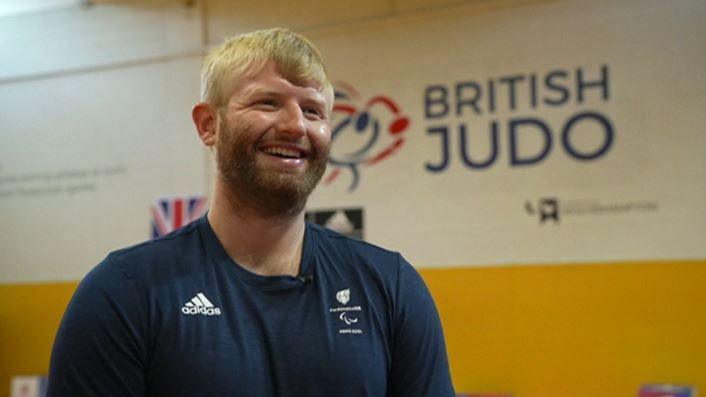The Paralympic classification winners and losers
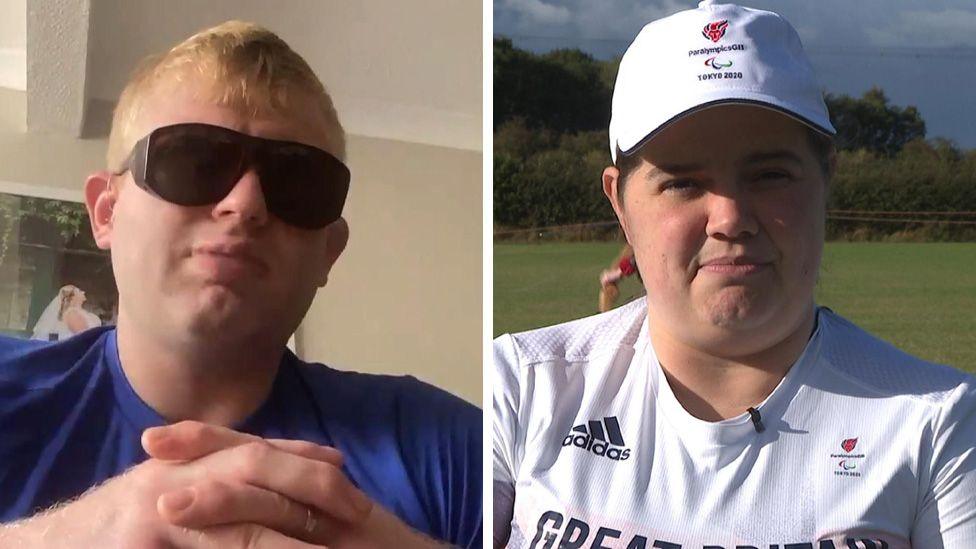
Paralympians Chris Skelley and Victoria Rumary
- Published
Chris Skelley won a bronze medal in judo at the Paris Paralympic Games.
But at the start of this year, the Hull athlete had been unsure if he would be able even to compete in the games.
Reflecting on the questioning of his classification, Skelley told BBC Look North that "it just broke me a bit" and "brought up a lot of demons in my own mind".
Victoria Rumary, from Scunthorpe, who secured a bronze in archery at Tokyo 2020, also had her classification challenged ahead of the Paris games – and, unlike Skelley, the authorities concluded she would be unable to compete in France.
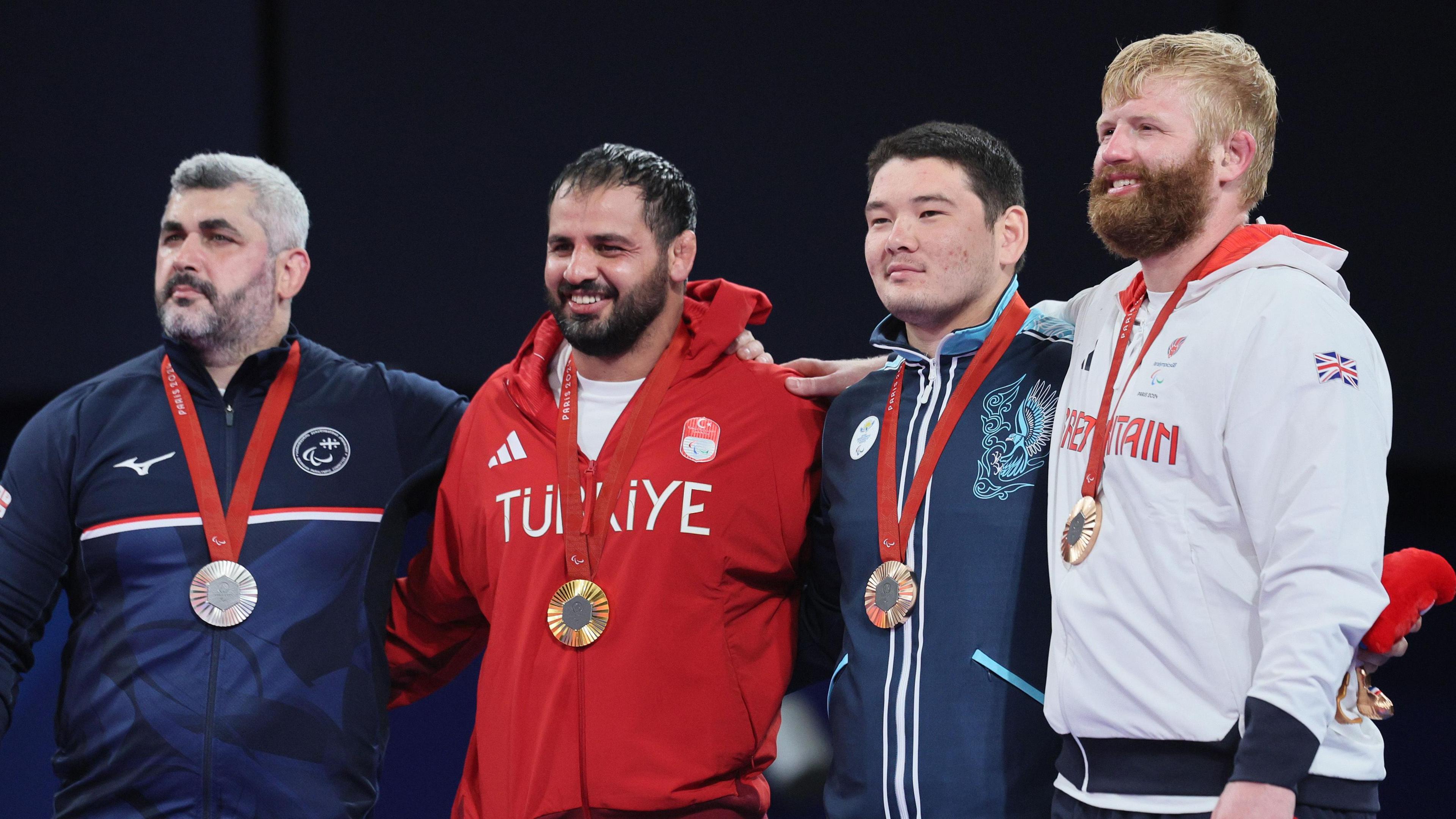
Chris Skelley (right) poses for a photograph alongside his fellow medallists at Paris 2024
Rumary described that decision as "hard and upsetting", and added: ''I wanted to give up on life. It was, like, what was the point?"
Skelley has a degenerative eye condition called ocular albinism, which means his sight is affected by the light and his vision is very poor.
"This year, for some reason, the classifiers wanted a little bit more information on it – even though I've been classified for the last 14 years in Paralympic judo," he said.
He added that he "stuck to the process" and some "amazing people" got involved, and ultimately his classification was changed, allowing him to compete in Paris.
"I felt a bit upset, I felt a bit hurt – but it's how you react to it," he said.
"You've just got to be confident and stick to who you are. I'm just Chris Skelley, the judo athlete."
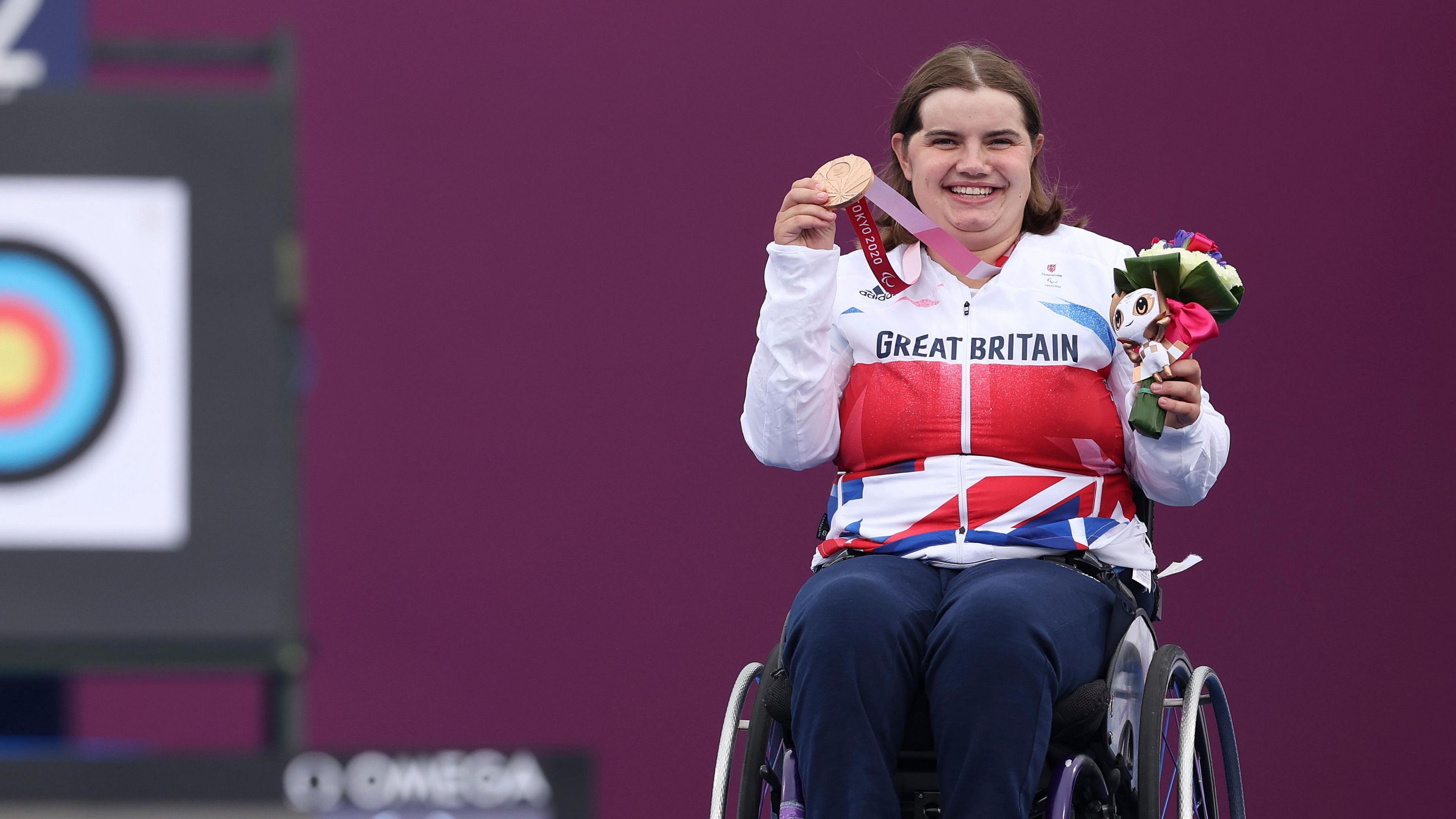
Victoria Rumary with her bronze medal at Tokyo 2020
There was no such joy for Rumary, who had to leave Paralympics GB and watch the games from home.
"I was still supporting teammates out there – I wanted them to do well," she said.
"But at the same time, you feel eaten up inside you. I know if I'd got my classification I could possibly have been there."
Rumary has epilepsy, and as she got older her seizures became more severe. She was told surgery was her best option, and that proved successful, but an infection led to a severe seizure in 2013, and she has been unable to walk since.
After a protest was put in against her classification, Rumary was told by classifiers she "might be too good for one category but not [good] enough for another category".
"[It] meant I couldn't compete, which was really hard and upsetting," she said. "It just had all been taken away."
Hope for the future
Skelley said he understood the rationale behind classification changes.
"I think they're just tightening up the boundaries a bit, which is right – you should tighten up the boundaries," he said, but added: "I think what they did was a little bit weird. But I stuck to the processes – we got some amazing people involved."
Rumary, meanwhile, hasn't ruled out competing again in the future.
"I'd love to represent them again... rules change, classifications change, categories get added, categories get taken away," she said.
"You never know – I hope I might be able to again.
"I love my archery – they can't take that away from me."
Follow BBC East Yorkshire on Facebook, external, X, external (formerly Twitter), and Instagram, external. Send your story ideas to eastyorkslincs.news@bbc.co.uk, external
Related topics
Related stories
- Attribution
- Published28 August 2024
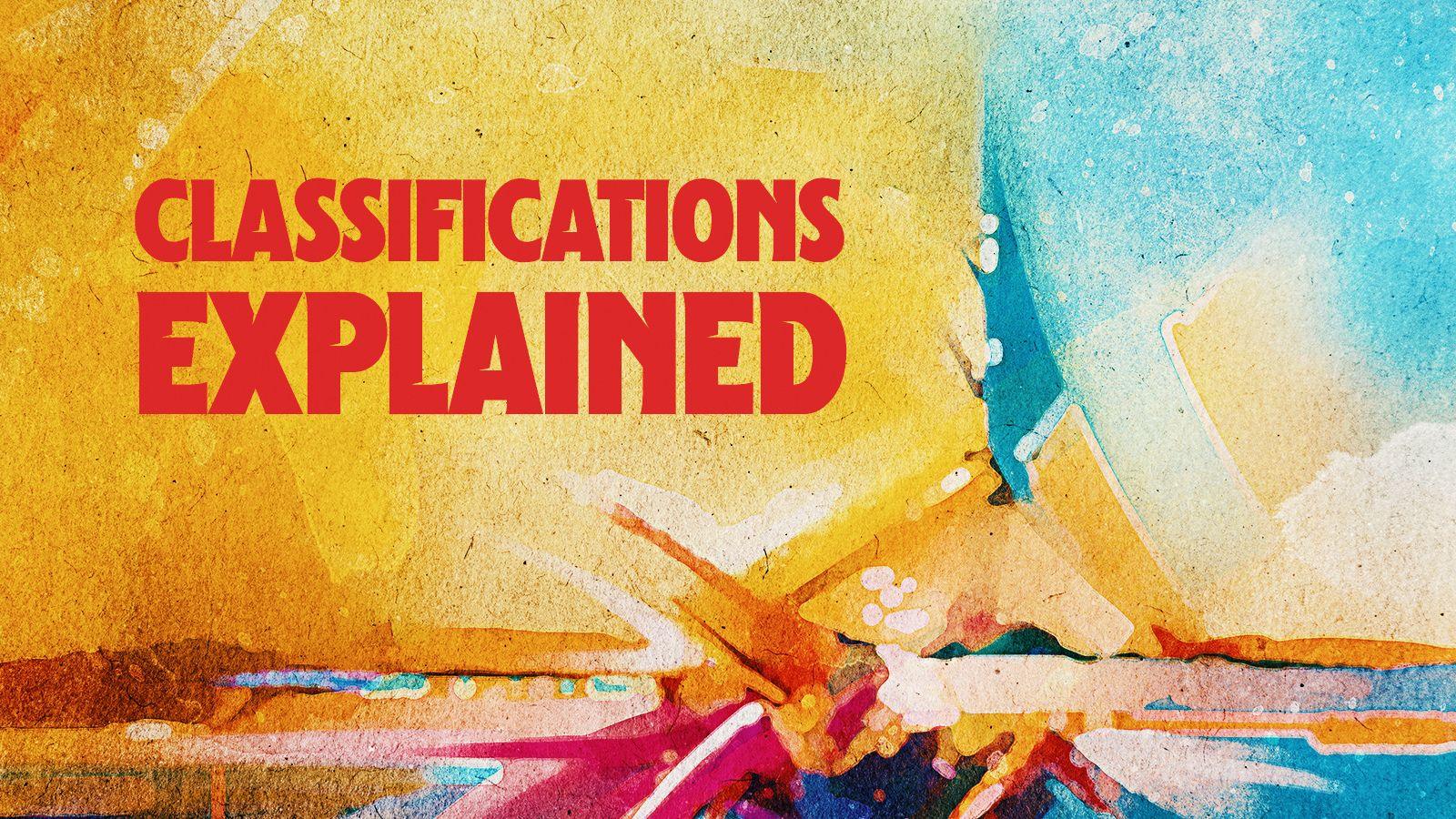
- Published22 July 2024
